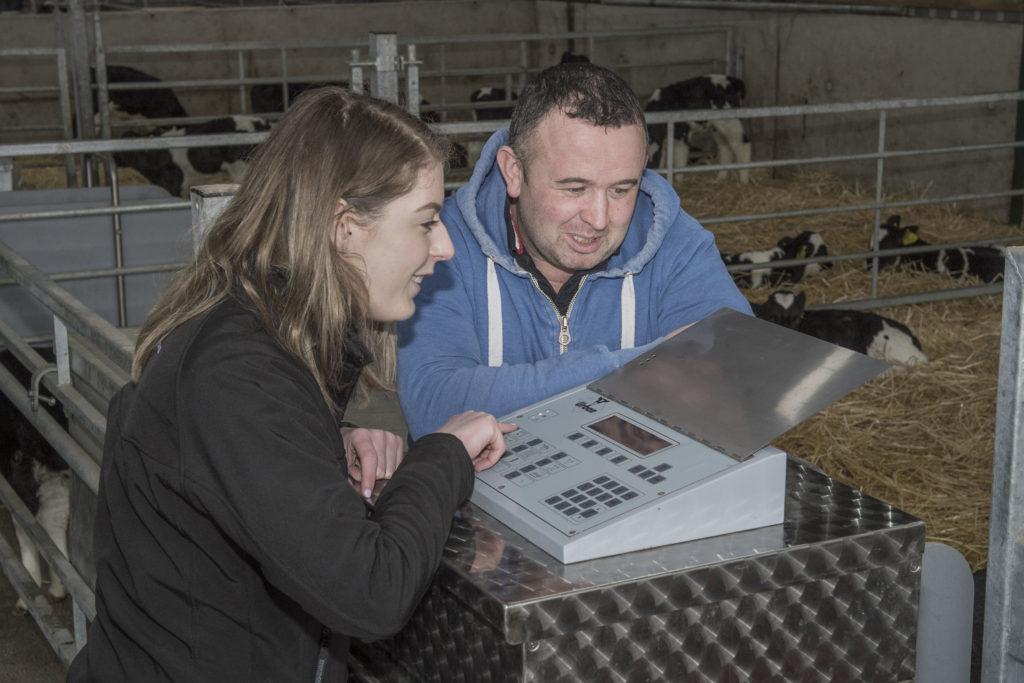Get a 24 hour weather forecast

Whether you have or haven’t gotten your feeder up and running for the season yet, here are a few key points to keep in mind:
Make sure that the feeder is spotless
The feeder should be rinsed and the auger hoovered out at the end of every season to remove any milk replacer left. There should be no powder left from the previous year in the auger when adding the new milk replacer. If there is this should be cleaned out. Make sure to place the scoop or container over the mixing bowl when doing this to stop any clumps going into the mixing bowl. If this gets into the lines it can;
Service the machine
It is important to have the machine serviced before each season, this is to ensure lines are clean and therefore there is less chance of sickness in the calves. When there is such a large amount of calves drinking from the one machine it is so important to keep on top of hygiene.
Calibrate the feeder to the pallet
If you haven’t gotten the machine calibrated yet, have the pallet of milk replacer bought and in the yard for whoever will be calibrating the machine, this way they can calibrate the whole pallet. Each pallet may vary on density therefore it is recommended to calibrate the machine with every new pallet.
Filling the Feeder
Be careful when putting the milk replacer into the machine, any bits of paper, plastic, straw or dirt that enters the machine can block the pipes and stop the calves from receiving milk. If this happens another service may be needed and feeding will be affected which effects the calf’s growth.
Feeder management
When using the feeder try and get into a routine of changing the teats, daily if possible when you go in to check on the calves. Have two teats for each feeder station and a bucket of Milton or 2% peracetic acid and rotate them daily or every other day. This will reduce the spread of any infection.
Make sure to check the powder dispenser every couple of days and remove any powder that has caked due to steam from the water tap. If this builds up it will affect the amount of powder which is dispensed per litre.
When the season is finished and the feeder has been cleaned follow the manufacturers guidelines, some feeders must be left on standby.
For any further information on feeders or assistance with calibration and our Prime Elite Milk Replacer range contact Dairygold’s Calf Milk Replacer Specialist Susan Casey on 087-0671246 or Inside Sales on 022-31644.